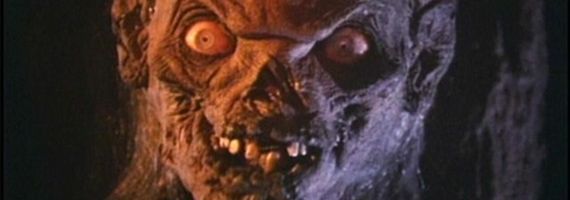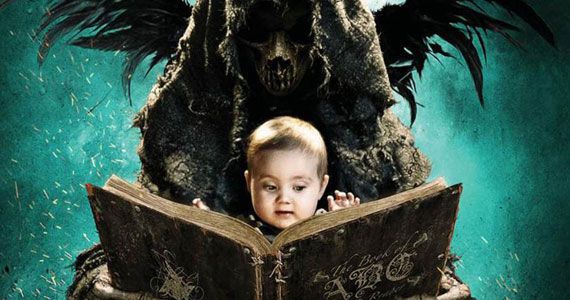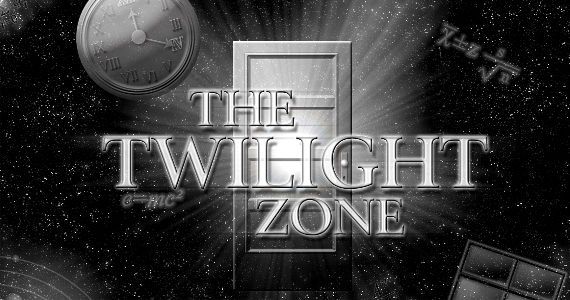A new generation that was raised on anthology films and TV shows like Creepshow, Tales from the Crypt, and The Twilight Zone has begun paying homage to those masterworks through films like Trick R’ Treat, V/H/S, The ABCs of Death – and even comic books like Archaia’s Moon Lake and the re-born Creepy and Eerie. However, when it comes to anthology storytelling, television is still lagging behind.
It isn’t just the long and impressive tradition of these shows (which dates back to the dawn of the medium and visionaries like Alfred Hitchcock, Merwin Gerard, and Rod Serling) that makes TV’s anthology-deficiency surprising – it’s more perplexing that the deficiency exists within the current climate of horror domination on TV.

The Walking Dead, American Horror Story (a modern TV anthology success story), Supernatural, True Blood, Grimm and many others all have a common beasty or supernatural thread, relying on vampires, ghosts, werewolves, witches, and/or zombies to tell their stories and win over viewers across a large range. The best anthology tales have been more focused on psychological horror, fantasy, and science fiction, and not the familiar creatures that go bump in the night, but the success of the former should speak to the latter’s potential, since there is likely a fair amount of crossover between the genres.
Is that enough, though? Right now, the development process seems as if it resembles a Quixotic search for an instant and guaranteed winner, and while an anthology series seems like it could be potentially successful, it isn’t a certainty – especially given recent history.

The format wasn’t completely abandoned after the Cryptkeeper took his last bow in the ’90s. Kid-skewed anthology shows from R.L. Stine and others have continued, and the UK has Black Mirror, but the last domestic/adult entry was Mick Garris’ Masters of Horror/Fear Itself series in the mid-aughts – and that was far from a ratings hit.
This is about more than numbers, though – it could also be about building something through risk and chance in the hopes of spawning not just good genre television, but also a ton of IP. Remember, Tales from the Crypt spawned three films, and with the right focus, an anthology show could become its own brand.
That means nothing without the right talent, though, and that is where the true benefit to the horror genre (or even science fiction, because a new Outer Limits-like show would be equally stellar) comes in: an anthology series provides ample opportunity for both genre masters and those not usually associated with horror to shake things up and experiment.

Tales from the Crypt and Masters of Horror boasted an enviable list of horror directors and writers, while also allowing actors like Tom Hanks to dabble. The original Twilight Zone brought Richard Matheson and Ray Bradbury to televised fiction, while the mid-1980s reboot gave us some of J. Michael Straczynski’s first notable live-action work. The upcoming sequel to The ABCs of Death is a great example for what an anthology TV show could do, by inviting non-genre talents into the fold.
A rebooted Twilight Zone is probably the most adequate delivery system for a new weekly anthology series on TV (due to brand recognition) but a show like this requires a ringleader who is willing to suffer the comparisons to its peerless predecessor and the challenge of constructing anywhere from 6 to 13 or even 22 micro movies in a short amount of time.
In December of last year, X-Men: Days of Future Past director Bryan Singer (who also produced Trick R’ Treat) announced that he was willing to take on the responsibility of breathing life back into the franchise, but thus far, the process has been painfully slow. In March, Singer reiterated his interest in the project, while acknowledging the heady challenges that come with such an endeavor.
“It’ll be a little slower in process because of where I’m at with this film [X-Men: Days of Future Past], but it’s definitely something I’m passionate about. You know it’s always a challenge with anthology television shows because you don’t have a standing cast, so you’re always recasting. And you’re always finding new locations and environments to serve the different stories. But I’m anxious to figure out the right way to do it because I love anthologies.
“I love anthology movies and anthology television shows. I’m very passionate about it and some of those stories I think are worth revisiting now. And there are ways that they can be treated now, they can be scarier than they were then and also they can be much more visual because we have more technology. Back then you were shooting on the back lot or out west and now you can pull off a lot more for television. So I’m really looking forward to getting into it. There’s writer that I just got involved in it. I don’t want to say who it is yet because we have to make a deal, but somebody I enjoy working with. So that’s coming together right now, actually. So yeah, I’m into it.”

With the promotional tour for X-Men: Days of Future Past a few months away, there is a kernel of hope that Singer will provide a bit more insight into the vital signs of his Twilight Zone project, but the fact that Warner Bros. is slowly developing a non-anthology film with Oblivion director Joseph Kosinski might not bode well for the future of the TV project. That’s surprising because television feels like a more logical outlet, but the same could be said for Star Trek, and we see how resistant Paramount and CBS have been to the idea of a concurrent Trek show and movie franchise.
Will we see a Twilight Zone TV series again, another revitalized classic, or something entirely new? Despite the inherent difficulties, it feels inevitable, but with all the risk aversion going on in television – even cable – one has to wonder if the future of one of television history’s most influential formats might rest in the hands of companies like Netflix, Amazon, and the more adventurous web.
_____




